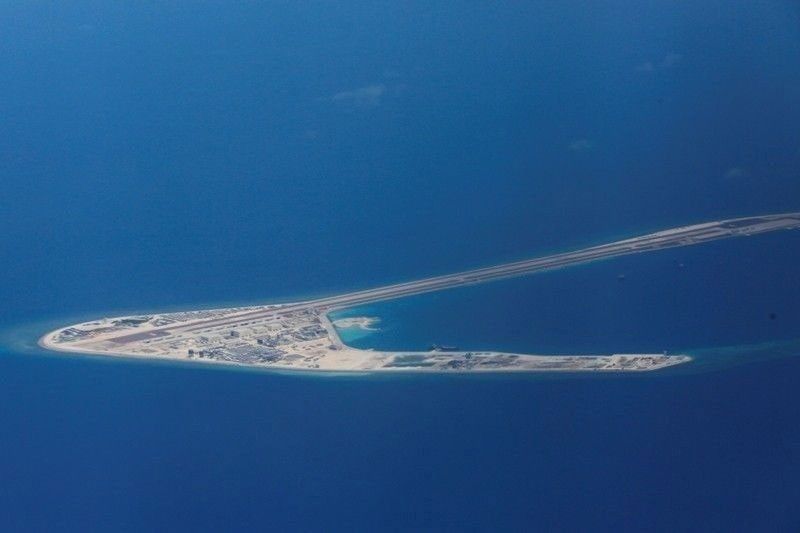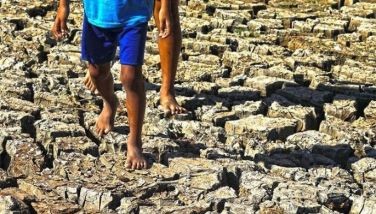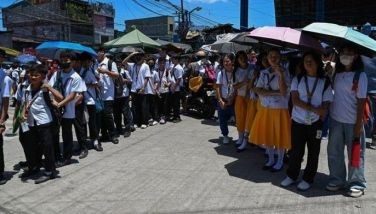G7 to tackle free, open Indo-Pacific

HIROSHIMA – Maintaining a “free and open Indo-Pacific region” amid China’s behavior in the South China Sea and East China Sea will be among the main geopolitical issues in Asia to be addressed by this year’s Group of 7 Summit, which opens here tomorrow.
This pressing concern that directly impacts the Philippines and Japan is expected to be discussed as United States President Joe Biden and leaders of the world’s most influential nations and the European Union gather together from May 19 to 21.
Takashi Ariyoshi, director of the Economic Policy Division in Japan’s Ministry of Foreign Affairs (MOFA), said Japanese Prime Minister Fumio Kishida will welcome the heads of state arriving for the G7 Hiroshima Summit.
At the same time, Ariyoshi shed light on the key topics up for deliberation, including the quest for a free and open Indo-Pacific region amid China’s activities in disputed maritime territories; concern over Russia’s aggression against Ukraine and nuclear disarmament and non-proliferation.
“While we acknowledge the multitude of challenges within the region, such as the East China Sea, South China Sea and China’s behavior, our primary focus is to ensure that this region, which serves as the epicenter of growth and stability, upholds the principles of rule of law,” Ayoshi told The STAR on Tuesday after briefing select members of the media from 10 countries, including the Philippines.
Ariyoshi noted that by having partner nations and with even the Europeans also showing interest in the region, Japan expects regional issues to be discussed in order to pursue “what is needed to maintain this free and open order.”
The Senkaku Islands dispute in the East China Sea poses a parallel challenge to Japan, akin to the situation faced by the Philippines in the South China Sea and West Philippine Sea.
China’s claim over the islands, allegedly infringing upon Japanese sovereignty, has intensified tensions in the region. The Japanese government, according to the MOFA official website, highlighted that China had not contested Japan’s sovereignty over Senkaku Islands for approximately 75 years, following their incorporation in 1895.
However, the situation changed in the 1970s when the islands attracted significant attention due to the potential presence of oil reserves in the East China Sea.
While the specific agenda for discussions during the summit has not yet been announced, Ariyoshi expressed Japan’s longstanding concerns regarding the South China Sea and emphasized the importance of avoiding any alteration of the status quo through coercive means.
“Of course, until the leaders discuss, we don’t know what they will discuss. But there are regional things happening, so in the view of Japan, South China Sea has also been a long-time concern to us and we do not want to see a change of status quo by force and so I hope we could discuss these kind of things in the session,” Ariyoshi said.
He voiced hope that these vital issues would be addressed during the session, leveraging the participation of the G7 member-nations, eight invited countries and seven international organizations to achieve a consensus.
“We want to agree on this kind of importance of maintaining free and open Indo-Pacific,” Ariyoshi said.
This year’s G7 Summit marks the return of the prestigious gathering to Asia after a seven-year hiatus, showcasing Japan as the sole Asian representative among G7 nations.
Joining Kishida and Biden are Italian Prime Minister Giorgia Meloni, Canadian Prime Minister Justin Trudeau, French President Emmanuel Macron, United Kingdom Prime Minister Rishi Sunak and German Chancellor Olaf Scholz.
Charles Michel, president of the European Council, and Ursula von der Leyen, president of the European Commission, both of the EU, are also attending the Hiroshima Summit.
The event further boasts the participation of invited countries, including Australia, Brazil, Comoros, the Cook Islands, India, Indonesia, the Republic of Korea and Vietnam.
International organizations such as the United Nations, International Monetary Fund, World Bank, World Health Organization, Organization for Economic Cooperation and Development, World Trade Organization and the International Energy Agency have also received invitations to take part in the summit’s deliberations.
- Latest
- Trending
































